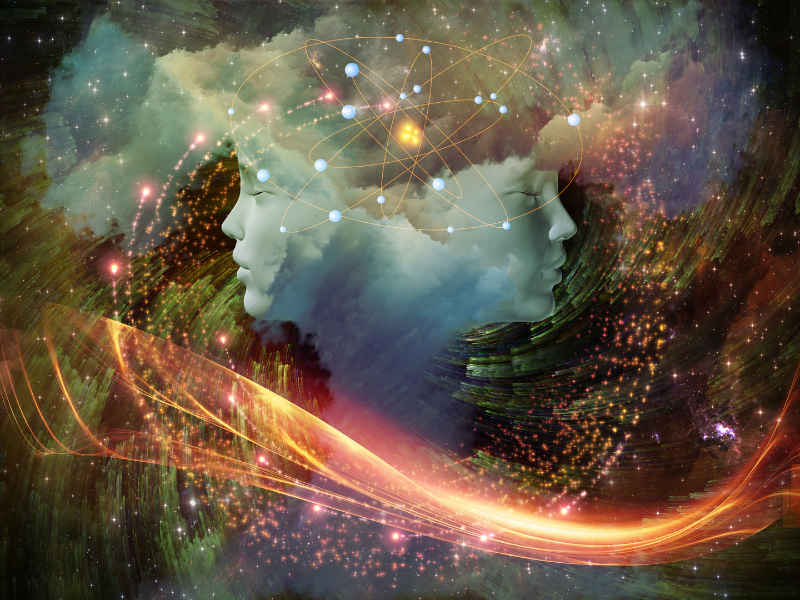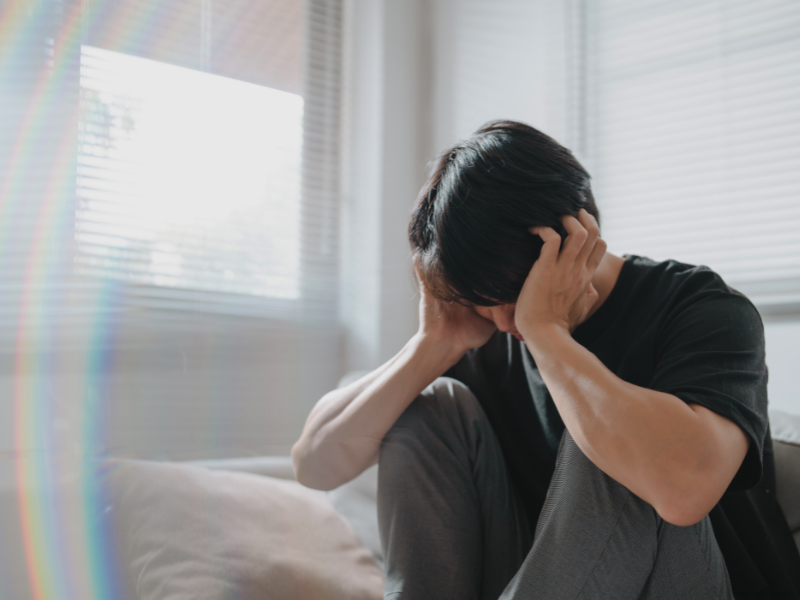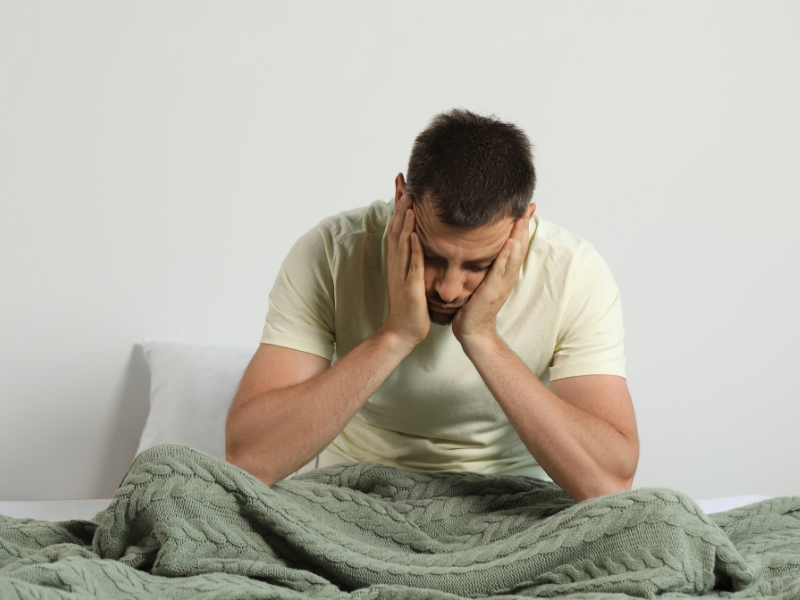Everyone has experienced dreaming at least once in their lives. Usually, people tend to forget what they dreamt about when they wake up. However, some may be able to recall it throughout the day, especially if it were vivid dreams.
In this article, we’ll take a look at what vivid dreams are, why they happen, and if there’s any significance behind them.
What Are Vivid Dreams

Vivid dreams occur during rapid eye movement (REM) sleep and they can be described as dreams that are loose, fanciful, and often bizarre in narrative.
Upon waking up from a dream like this, you are likely to recall the events in great detail. It’s also been noted that such dreams are also correlated to concerns, mood, or social interactions in your waking life [1].
Different Types of Dreams

It is not uncommon to experience different types of dreams each night. Dreams are a reflection of our waking life and our subconscious. Some of the common types of dreams that people may experience are:
- Vivid dreams: These dreams are so detailed and vibrant that we remember them vividly upon waking up. They often contain vivid imagery and evoke intense emotions, making them feel incredibly real.
- Lucid dreams: In lucid dreams, the dreamer fully knows they’re in a dream. This awareness grants them the ability to consciously control and manipulate the dream, creating a unique and immersive experience.
- Fever dreams: These dreams can be particularly intense and surreal due to the heightened temperature of our bodies. Fever dreams may present unusual and fantastical scenarios.
- Nightmares: These dreams are characterized by disturbing and vivid content. Nightmares can induce feelings of fear, anxiety, and distress, often leaving a lasting impact on our waking state.
Difference Between Lucid Dreams and Vivid Dreams
While both lucid dreams and vivid dreams are similar in terms of being vibrant and detailed, there is also a distinct difference between the two.
Lucid dreams are dreams in which the dreamer is aware of the fact that they are dreaming and is consciously controlling the dream.
In comparison, vivid dreams are dreams in which the dreamer may not be aware that they are in a dream state. They’re not able to control their dreams and it can sometimes be mistaken for reality.
What Causes Vivid Dreams?
A person may experience vivid dreams for many different reasons. Here are some of the common causes of vivid dreams.
Stress and anxiety

Having too much stress and anxiety in your waking life can cause you to experience very vivid dreams. It is believed that the reason for that is that dreams play a role in emotional regulation and memory consolidation [2].
Additionally, those with post-traumatic stress disorder (PTSD) are also likely to experience intense nightmares or vivid dreams as they struggle to process the traumatic events that have happened [3].
Sleep disorders
Some sleep disorders may present with symptoms of vivid dreams alongside sleep disturbances. REM sleep behavior disorder (RBD), nightmare disorder, and narcolepsy are examples of sleep disorders that may involve vivid dreams.
Sleep deprivation

Sleep deprivation is also another reason that may cause vivid dreams to take place. When you are sleep-deprived, you are likely to experience much greater sleep intensity and brain activity. This phenomenon is known as REM rebound which can cause you to experience more vivid dreams [4].
Medications
Some medications can cause the side effects of vivid dreams and nightmares. This includes melatonin, certain diabetic medications (e.g. ozempic, wegovy, and zepbound), medications that affect dopamine levels in the brain, and medications for ADHD [5].
Mental health conditions
Mental health also plays a role in the type of dreams that can occur. Those with mental health conditions may experience more frequent vivid dreams than those without any.
Depression, anxiety disorder, post-traumatic stress disorder (PTSD), and schizophrenia are conditions that are linked to vivid dreams.
Pregnancy

Pregnancy-related dreams commonly happen during the last trimester of pregnancy with many women reporting frequent nightmares.
There are many theories as to why these pregnancy dreams may take place, including hormones, stress and anxiety, and frequent sleep disruptions [6]. If it starts to affect your waking life, you may want to consult a healthcare provider for proper treatment.
Side Effects Of Such Dreams

Vivid dreams can have various effects on your sleep and overall well-being. These intense dream experiences can lead to side effects such as:
- Sleep disruption
- Daytime sleepiness
- Problems with concentrating
- Poor social functioning
- Fragmented sleep
If you’re having vivid dreams regularly, seeking appropriate treatment for underlying mental health conditions may help reduce their frequency and intensity. This, in turn, can improve your sleep and overall well-being.
How To Treat Vivid Dreams
If you are looking for ways to reduce the frequency of vivid, realistic dreams and get better sleep, you may want to consider these effective options:
- Cognitive Behavioral Therapy (CBT): Cognitive behavioral therapy can help reduce nightmares, especially for people with PTSD. It focuses on identifying and changing negative thought patterns and behaviors associated with dreams.
- Imagery Rehearsal Therapy (IRT): This is a method that aims to process and rewrite disturbing dreams. It involves visualizing a positive outcome or alternative scenario for the dream, which can help people reduce the intensity and frequency of the dream.
- Medications: Medications such as antidepressants and antipsychotics, may be prescribed in some cases of nightmare disorder to alleviate the intensity of vivid dreams.
- Stress management techniques: Practicing stress management can also be helpful in reducing stress-induced nightmares. Relaxation exercises, deep breathing, and mindfulness exercises are techniques that promote better sleep and decrease the occurrence of unpleasant vivid dreams.
Conclusion
Vivid dreams occur due to various factors in your waking life such as stress, sleep disorders, sleep deprivation, medications, mental health conditions, or pregnancy. While they may affect sleep patterns, there are strategies to reduce the frequency of it.
If you want to stop letting vivid dreams prevent you from getting a good night’s sleep then you might want to check out ShutEye® app. ShutEye® is a science-backed sleep app that tracks your sleep cycle and offers recommendations to ensure you receive the best quality sleep. Try it today!















